Advisory Board Members
Welcome to the Advisory Board members’ page of the German University of Digital Science. Here, we proudly introduce our board members — an accomplished group of leaders in academia, technology, and digital innovation. Their diverse expertise spans digital education, policy-making, cutting-edge research, and strategic leadership, all of which are crucial to advancing our university’s mission of pioneering digital science education. Each member brings a unique perspective and a wealth of experience to help guide our efforts in shaping the future of digital learning. Scroll down to learn more about their remarkable careers and contributions.
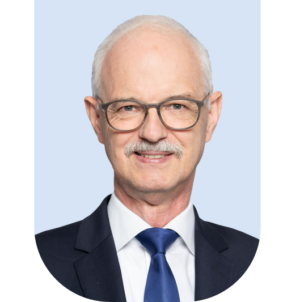
Prof. Dr. Jürgen Prömel
After completing his Abitur at the Humanistic Gymnasium in Emmerich, he studied Mathematics and Economics at the University of Bielefeld from 1974 to 1979, where he earned his doctorate (Dr. math.) in 1982. From 1984 to 1985, he served as an Assistant Professor at the University of California, Los Angeles. In 1988, he accepted a full professorship in Discrete Mathematics at the University of Bonn, and in 1994, he moved to the Chair of Algorithms and Complexity at Humboldt University in Berlin, where he was Vice President for Research from 2000 to 2007 and acting President in 2005. In 2007, he was elected President of the Technical University of Darmstadt, starting his term on October 1, 2007, and was reappointed for a second term until 2019. In February 2021, he became the founding president of the newly established Technical University of Nuremberg, a position he held until April 2024. Since July of this year, he has been serving as the interim President of the University of Music, Drama, and Media in Hanover. His main research areas include combinatorics and graph theory, with a focus on applying probabilistic methods and discrete optimization algorithms in mathematics, computer science, and engineering.
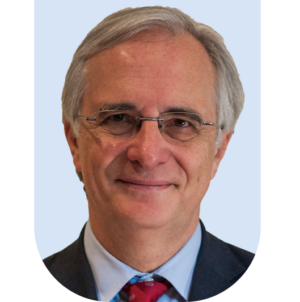
Prof. Dr. Carlos Delgado Kloos
He is a Full Professor of Telematics Engineering and the Rector’s Delegate for Digital Microcredentials at Universidad Carlos III de Madrid. He holds Ph.D. degrees in Computer Science from Technische Universität München and in Telecommunications Engineering from Universidad Politécnica de Madrid. He directs the GAST research group and the UNESCO Chair on “Scalable Digital Education for All.” His career includes roles such as Vice Rector for Strategy and Digital Education, and research stays at top universities like Harvard and MIT. With over 500 publications, he focuses on Educational Technology, has led MOOCs reaching 650,000+ registrations, and promotes digital micro-credentials in Spain through CertiDigital.
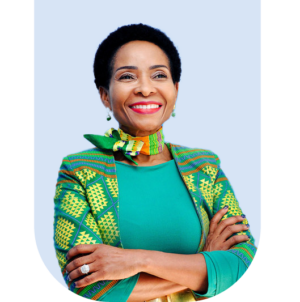
Prof. Dr. Mamokgethi Phakeng
She is a distinguished academic and former Vice-Chancellor of the University of Cape Town, Africa’s top-ranked university, where she served until her early retirement in March of this year. With over 20 years of executive leadership experience in higher education, Dr. Phakeng holds a PhD in Mathematics Education from the University of the Witwatersrand, alongside honorary doctorates from the University of Bristol (DSc, 2019) and the University of Ottawa (DEd, 2022). Her extensive contributions have earned her numerous accolades, including South Africa’s Order of the Baobab (Silver, 2016), recognition as Africa’s most influential female academic (2014), and inclusion in Forbes’ 50 Most Powerful Women in Africa (2020). In 2022, she received the inaugural Africa Education Medal and in 2023, the Global Lifetime Achievement Award by Women in STEM. Dr. Phakeng founded the Adopt-a-Learner Foundation in 2004 to support underprivileged South African students in accessing higher education. As Vice-Chancellor, she donated a portion of her salary and public speaking fees to scholarship funds at UCT. Following her retirement, she joined the Presidential Advisory Council on National Orders and currently engages in business ventures across media, agriculture, and consulting.
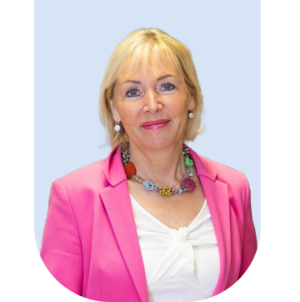
Prof. Dr. Kristina Sinemus
She served as Hessian’s first Minister for Digital Strategy and Innovation from 2019 to 2023, leading efforts in digitalization and technology-driven growth. She founded and managed the consulting firm Genius, a spin-off from the Technical University of Darmstadt, focusing on communication strategies at the intersection of science, business, and society. Appointed in 2011, she is also a Professor of Public Affairs at Quadriga University in Berlin, though her professorship is currently suspended. Prof. Sinemus made history as the first female Vice President (2009) and President (2014) of the Chamber of Industry and Commerce in Hesse. She studied Communication Science, Education, Biology, and Chemistry, earning her Ph.D. from the Technical University of Darmstadt in 1995. Born in Darmstadt, “the city of science,” she grew up in Northern Hesse’s Waldecker Land.
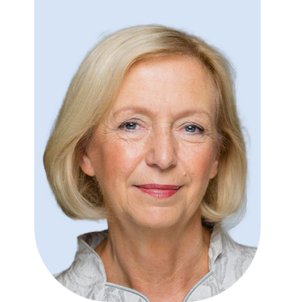
Prof. Dr. Johanna Wanka
She is a distinguished German mathematician and former CDU politician who significantly impacted Germany’s education and research policies. She earned her doctorate in mathematics from the University of Leipzig, specializing in engineering mathematics, and later became a professor at the Merseburg University of Applied Sciences, where she also served as the Rector from 1994 to 2000. Dr. Wanka’s political career includes serving as the Minister of Science, Research, and Culture in Brandenburg (2000–2009) and the Minister of Science and Culture in Lower Saxony (2010–2013), where she championed the modernization of universities and research institutions. As Germany’s Federal Minister of Education and Research (2013–2018), she played a pivotal role in initiatives like the “Digital Pact for Schools,” which aimed to enhance digital infrastructure in education, and increased funding for scientific research. Her tenure was marked by efforts to advance Germany’s position in innovation, support STEM education, and promote collaboration between academia and industry.

Matthew Rascoff
Matthew joined Stanford in 2021 to establish and lead the Digital Education team, following his role as Associate Vice Provost for Digital Education and Innovation at Duke University (2017–2021). He previously served as Vice President and founder of the Office of Learning Technology & Innovation for the University of North Carolina system (2014–2017). His career includes launching JSTOR’s first international office in Berlin, leading product teams at Wireless Generation, and contributing to the strategy group at ITHAKA. He has also worked at Google on the Book Search operations team. Matthew holds an undergraduate degree from Columbia University, did graduate work at Bogazici University as a Fulbright Scholar, and earned an MBA from Harvard Business School. He was a German Marshall Memorial Fellow in 2013 and is married to historian Emily J. Levine, with whom he has two children, Jasper and Florence.
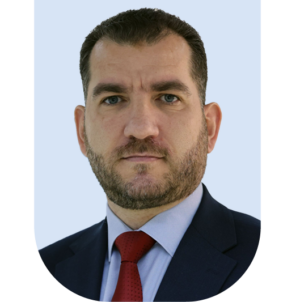
Dr. Mohammad AL-Smadi
He is an Associate Professor of Computer Science and founding director of the Office for Digital Learning and Online Education at Qatar University, with a Master’s in Computer Science from the University of Jordan and a Ph.D. in Engineering Sciences from Graz University of Technology. He has over 15 years of experience in higher education, previously serving at the Jordan University of Science and Technology, where he was Assistant Dean for Accreditation and Education Quality Improvement and founded the Center for e-Learning. His research in Technology-Enhanced Learning, Natural Language Processing, Human-Computer Interaction, and Social Computing has led to over 75 published papers and involvement in significant research projects. Dr. Al-Smadi has also played a crucial role in integrating online learning into higher education and developing Jordan’s K-12 Digital Skills Curriculum Framework.
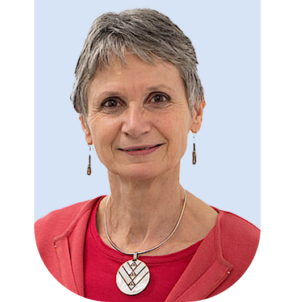
Prof. Dr. Agathe Merceron
She is Professor Emerita of Computer Science at the Berlin University of Applied Sciences (BHT), where she taught courses in algorithms, programming, machine learning, and green information technology. She led the online degree programs in Media Informatics from 2008 to 2022 and chaired the program board for Media Informatics at the Virtual University of Applied Sciences (VFH) from 2021 to 2022. Her research focuses on Technology Enhanced Learning, with a particular interest in Educational Data Mining and Learning Analytics. Dr. Agathe has held key roles in organizing major conferences such as EDM (2010, 2019), LAK (2015, 2018), and RKDE (2023, 2024). She has served as an Associate Editor of the Journal of Educational Data Mining and was its Editor from 2022 to July 2024.
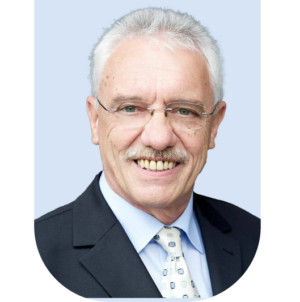
Prof. Michael Rotert
He is a pioneer in the German Internet industry, with a background in business science and informatics from the University of Karlsruhe. He played a crucial role in establishing Germany’s first university Internet connection in 1985 and later founded Xlink, one of the country’s earliest Internet service providers. Rotert’s leadership roles include serving as Executive Director at multiple ISPs, Senior Vice-President of KPNQWest, and from 2000 to 2017, Chairman of eco (Association of the Internet Industry in Germany). He has also held key positions at EuroISPA and was an industrial speaker for the G8 Cybercrime group. Named an Honorary Professor in informatics in 1999, he taught at the University of Karlsruhe from 1981 to 2016. An Internet advocate, he has advised the EU, UN, and U.S. Department of Commerce, and co-founded ISOC (Internet Society) in 1991.
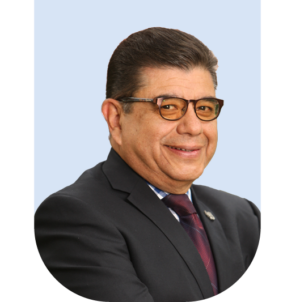
Prof. Dr. Lorenzo Valle Garcilazo
He is a seasoned Information Technology executive and professor at TEC de Monterrey, with recent teaching roles at the Hasso Plattner Institute’s Digital Health Cluster (since 2022). For over 24 years, he has contributed to entrepreneurial, educational, and digital transformation projects across the public and private sectors in Mexico and Latin America. Notable initiatives include developing the Virtual University System at TEC de Monterrey, the Enlaces project for basic education in Chile, and the CENAPAD high-performance computing project in Brazil. He also played a key role in shaping the TEC21 Educational Model (2019) and the Integrator Program for Industrial Engineering graduates (2022).
